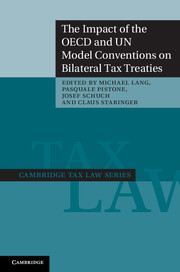Book contents
- Frontmatter
- Contents
- Contributors
- Preface
- Table of cases
- Table of statutes
- General report
- 1 Argentina
- 2 Australia
- 3 Austria
- 4 Belgium
- 5 Brazil
- 6 Canada
- 7 Chile
- 8 China
- 9 Colombia
- 10 Croatia
- 11 The Czech Republic
- 12 Estonia
- 13 Finland
- 14 France
- 15 Germany
- 16 Hong Kong
- 17 Hungary
- 18 India
- 19 Italy
- 20 Lebanon
- 21 Liechtenstein
- 22 The Netherlands
- 23 New Zealand
- 24 Norway
- 25 Peru
- 26 Poland
- 27 Portugal
- 28 Romania
- 29 The Russian Federation
- 30 Serbia
- 31 Slovakia
- 32 Slovenia
- 33 Spain
- 34 Sweden
- 35 Uganda
- 36 The UK
- 37 The USA
- Index
- References
5 - Brazil
Published online by Cambridge University Press: 05 November 2014
- Frontmatter
- Contents
- Contributors
- Preface
- Table of cases
- Table of statutes
- General report
- 1 Argentina
- 2 Australia
- 3 Austria
- 4 Belgium
- 5 Brazil
- 6 Canada
- 7 Chile
- 8 China
- 9 Colombia
- 10 Croatia
- 11 The Czech Republic
- 12 Estonia
- 13 Finland
- 14 France
- 15 Germany
- 16 Hong Kong
- 17 Hungary
- 18 India
- 19 Italy
- 20 Lebanon
- 21 Liechtenstein
- 22 The Netherlands
- 23 New Zealand
- 24 Norway
- 25 Peru
- 26 Poland
- 27 Portugal
- 28 Romania
- 29 The Russian Federation
- 30 Serbia
- 31 Slovakia
- 32 Slovenia
- 33 Spain
- 34 Sweden
- 35 Uganda
- 36 The UK
- 37 The USA
- Index
- References
Summary
The relevance of the OECD and UN Model Conventions and their Commentaries on the interpretation of Brazilian tax treaties
Tax treaties are not a frequent issue in Brazilian courts, particularly if one considers the judicial decisions. Specifically concerning interpretation, one could recall a recent decision about the application of Article 7 to services (instead of Article 21, as claimed by tax authorities), but even this case has not yet been concluded.
As a matter of fact, several tax cases do not even reach the judicial courts, since Brazilian law has an Administrative Review Procedure whereby taxpayers may bring their claims to the so-called Administrative Council of Administrative Appeals (Conselho Administrativo de Recursos Fiscais (CARF)), which replaced the Taxpayers' Council that existed until 2009. CARF is a very specialized group of experts, chosen among both tax authorities and taxpayers, which is supposed to review tax assessment in a way similar to a judicial procedure.
CARF has recently made some interesting decisions concerning tax treaties, particularly since Brazil adopted a full-transparency regime on its worldwide taxation, which is claimed to be against Article 7 of Brazilian tax treaties. In some cases, CARF understood that Article 7 would prevail before Brazilian legislation and, in others, that the treaty would not be applicable.
- Type
- Chapter
- Information
- Publisher: Cambridge University PressPrint publication year: 2012

